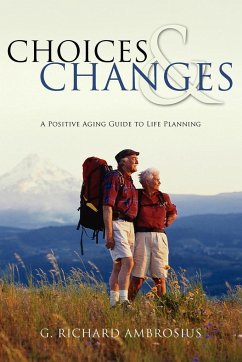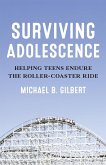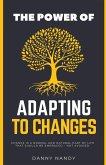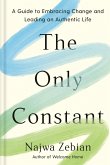For the first time in human history, the prospect of living a long, healthy and productive life has become a reality for the majority of people. What was the privilege of the few has become the destiny of the many. Robert Butler, MD, Gerontologist Choices & Changes is offered as a guide on how to plan to get the most from life's second half-not how to plan to get the most from "retirement." While you may think this is splitting hairs, you will come to realize how the words we use impact our perceptions, our self-image and ultimately our reality when planning for and experiencing the future. I have attempted to avoid the use of stereotypical terms like retiree, retirement, senior and other mindless terms often used to categorize millions of active, wise and responsible citizens (except when necessary to establish context.) I contend that how you choose to view the years ahead and your role in shaping that view will have a major impact on the quality and quite possibly the quantity of those years. Therefore, before discussing the elements of your "life plan," it is important to spend some time talking about expectations, aspirations and the words we use when discussing and creating our plans. In order to communicate with one another, we use words first, to create categories in which we then place people and things; and then, to create criteria with which to distinguish between those categories (age, sex, nationality, race, religion, education, etc). As we do this, the categories ultimately (and often unconsciously) shape our world view. "Retirement," for example, is a word stereotypically used to categorize that portion of life that occurs when one "quits working" and "becomes old." As such, we tend to distinguish "retirees" from "productive" members of society. We then help others distinguish these people by creating categories to describe places where they gather (senior centers) or dwell (retirement communities, healthcare centers, assisted living communities or 50+ communities.) Retirement is that magical time of life when the focus somehow shifts from who you are and what you do-to what you once did and who you used to be, as if all your experience is at once inaccessible to the person you've become How does this type of prejudice occur? Where does it come from? Let's examine the word. Various dictionaries offer multiple definitions of the word "retirement": * To go away, retreat or withdraw to a private, sheltered or secluded place * To go to bed * To give ground as in battle, retreat, withdraw * To give up one's work, business, or career especially because of advancing age * To move back or away or seem to do so You probably have noticed most of these definitions focus on quitting, going away, withdrawing from or giving up. "Retirement" implies that your self worth and your worth to society are a thing of the past. Such an implication is negative, unfounded and dangerous to one's health. It is fine to "retire" for the evening; but it is not fine to retire from life simply because of some mindless designation. While "retirement" may have been an appropriate descriptor of later life during the industrial age, when very few people lived into their 60's and 70's, the term is no longer relevant when applied to today's active, healthy and well-educated older adults. Perhaps it is time to "retire" words like retirement, retired or retiree when referring to people in life's second half, just as we have retired other words used to categorize and demean minorities and women over the years. I have been railing against aging stereotypes for 30 years; and now, for the first time, I am beginning to experience them myself as I approach my 60th year.
Hinweis: Dieser Artikel kann nur an eine deutsche Lieferadresse ausgeliefert werden.
Hinweis: Dieser Artikel kann nur an eine deutsche Lieferadresse ausgeliefert werden.








